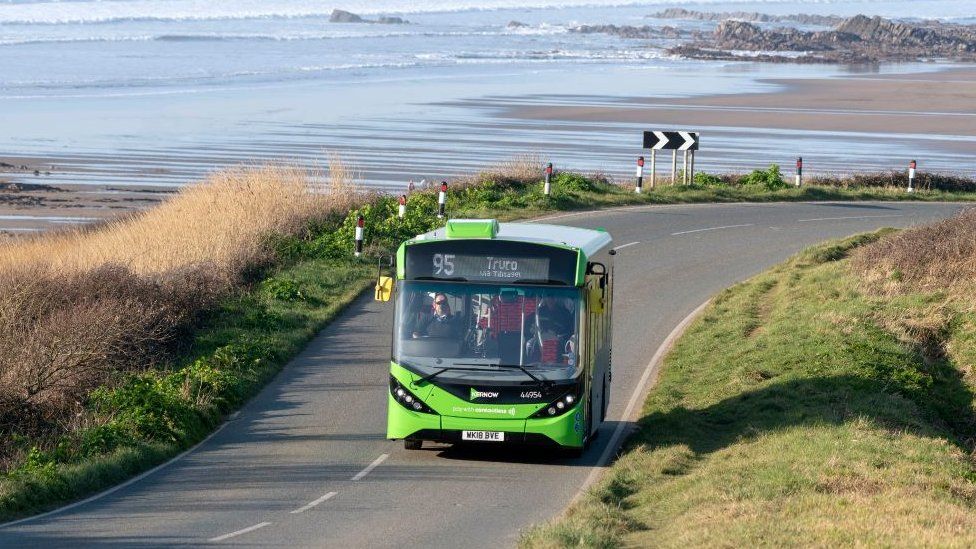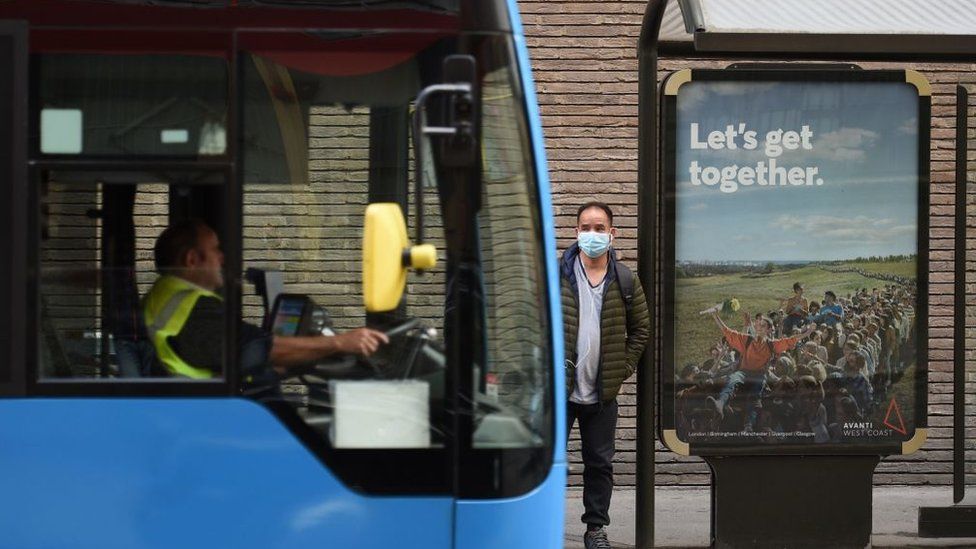Miles of new bus lanes and more services promised
 image copyrightGetty Images
image copyrightGetty ImagesThe government has said studying bus timetables will become a thing of the past as it promised hundreds of miles of new bus lanes and more frequent services in England.
The £3bn plan will make buses across the country cheaper and easier to use, the Department for Transport said.
It is promising services that are so frequent passengers will be able to "turn up and go."
But the plan has been met with scepticism from unions and Labour.
Price caps
As part of the overhaul, daily price caps will be introduced so that people can use the bus as many times a day as they need.
More evening and weekend services will also be introduced, and all buses will accept contactless payment.
The government hopes to meet its targets through so-called enhanced partnerships that will see local authorities agree to make improvements to infrastructure in return for better services from bus companies. More franchising will also be introduced.
As part of the plan, the government has promised to deliver 4,000 new electric or hydrogen buses that will be built in the UK by the end of this parliament.
It will also end the sale of diesel buses and has launched a consultation to decide when when the ban should come into effect.
It said the move will transition cities and regions across the England to emission-free vehicles while protecting the UK's bus manufacturing industry.


Today's strategy makes the right noises that will appeal to bus users.
But some passenger groups say the devil could be in the detail. They want to know how the government is going to make sure it pays for the long list of promises it has made.
That will come down to the plans that local authorities make with bus operators.
Some councils and operators will already be ahead of the game, with teams that are keen to work together, particularly after the last year when many bus routes and services had to change during the pandemic.
Other councils will find it more difficult to get people with the right skills in place to be able to work out what will be best for bus users in their area.
The government says it will provide support and funding to help draw up those plans.
How each part of the country experiences these changes will depend on how those local decisions are made.

Transport Secretary Grant Shapps said: "Buses are this country's favourite way of getting around."
"But services across England are patchy, and it's frankly not good enough."
Government figures from 2019 show that 7% of people travelled to work by bus, while 68% commute by car.
And bus use has fallen steadily over the past decade. In 2009, 4.64 billion journeys were taken on local buses. By 2019, that figure was 4.32 billion.
 image copyrightGetty Images
image copyrightGetty ImagesThe government said it wanted to encourage more people on to buses as the UK emerges from the coronavirus crisis.
"As we build back from the pandemic, better buses will be one of our first acts of levelling-up," Boris Johnson said.
"Just as they did in London, our reforms will make buses the transport of choice, reducing the number of car journeys and improving quality of life for millions."
But even in the capital, the number of journeys taken by bus has fallen by 1.4% since 2009.
In a statement, Labour's shadow bus minister Sam Tarry said: "This so-called strategy offers nothing for those who were looking for a bold vision to reverse the millions of miles of bus routes lost across the country."
"The Tories said deregulation would improve our buses but they're running bus services into the ground. Passengers now face a toxic mix of rising fares, cuts to services and reduced access."
And the Unite union, which represents more than 70,000 bus workers, said the plan would not be enough to reverse a decade of service cuts that have left communities isolated.
"The national bus strategy is an admission that the 1980s deregulation of the bus service has been a complete failure," said Bobby Morton, the union's national officer for passenger transport.
"Fares have increased, services have reduced, private operators cherry-pick the most profitable routes and social exclusion has mushroomed as connectivity has been cut."



No comments